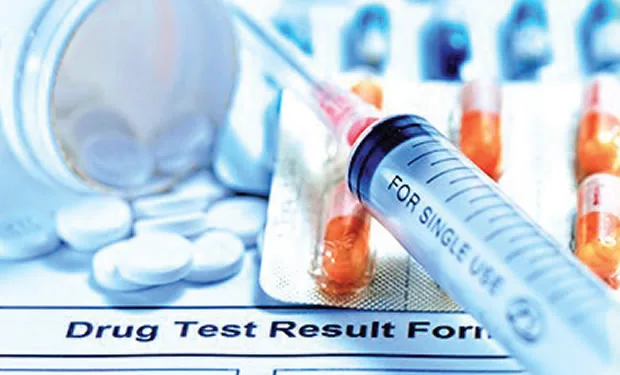That some students, and curiously, parents, of the Abubakar Tafawa Balewa University Bauchi (ATBU) will be brazen enough to oppose the school’s move to enforce compulsory drug testing, is consternating. But this is Nigeria where everything and anything is possible.
The students who are resuming after a five-week closure of the university following a skirmish, are expected to sign an undertaking not to involve in illicit drug usage and to undergo a toxicology test to check their state of mental health.
Nigeria, like other countries, especially on the African continent, has been bearing the brunt of sustained drug abuse which causes significant health and social problems for the people who use them, and also for others in their families and communities.
The rate at which drugs are increasingly being abused in Nigeria by not just the youths but even some elders and married women is alarming and demands that concerted efforts be made to mitigate this.
It is estimated that no fewer than 14.3 million Nigerians aged 15-64 years, are abusing drugs. As a matter of fact, according to the National Drug Law Enforcement Agency (NDLEA), about 10.6 million Nigerians abuse cannabis, making the country among countries with the highest number of cannabis addicts.
Cannabis, codeine, crack, tramadol, Rohypnol, skunk are some of the drugs and chemical substances increasingly being abused especially among the Nigerian students and other youths outside the walls of the classrooms and lecture theatres.
Different reasons are adduced for this steep increase in drug abuse by the youths. For some, it’s the thrill, the rush while others aim at finding solace to escape a deeper emotional pain by numbing themselves with tranquilizers and narcotics, amongst others.
What does this lead to? Increasingly we are witnessing drug possession/use with the attendant consequences being continuous erosion of our cherished values, robbery, prostitution and other sex crimes, terrorism, thuggery and steep decline in productivity.
There is a correlation between the high drug use and the rising rate of kidnapping and banditry in different parts of the country. Not only are these kidnappers acting under the influence of drugs, they have, through their sustained patronage and purchase in large quantities because of the easy money at their disposal, served as markets for drug merchants.
Even for this alone, the need for a sustained war against drug abuse in or outside the four walls of our tertiary institutions cannot be underestimated.
Undoubtedly, this among other reasons informed the ATBU’s decision to enforce compulsory drug testing. We enjoin the school not to be deterred by the so-called protest from some students and parents.
However, we are not ignorant of the fact that there are concerns about the N10,000 cost for conducting the test. The university management should address this genuine concern and work out modalities of reducing the cost, in liaison with some accredited health centers.
Good enough, other universities have, before now, taken this plausible decision. For instance, authorities of the University of Abuja, sometime last year, made drug tests compulsory for students, with every student providing drug test certificates from recognized centers.
As a newspaper, we make bold to say that the calls for compulsory tests by universities resonate well with us and reminds us of similar calls on politicians and even civil servants to present themselves for such since the menace, unfortunately, permeates the entire class.
Without any iota of doubt, we fully support universities’ decision to enforce compulsory drug testing and advocate for a national policy on compulsory drug testing, especially for civil servants and all those seeking public offices with those found positive outrightly disqualified so as to strengthen the war on drug abuse.
Allegations of drug consumption even among persons occupying high public offices are widespread. It is our contention that if fully put in place and diligently implemented so that there won’t be sacred cows, a national policy on compulsory drug testing will guard against this sheer national embarrassment.
The nation cannot afford to have drug addicts in public offices considering the colossal damage being caused by drug abuse on not just our national psyche but on the future generation. To this, the NDLEA must be fully supported to frontally execute the war against drug abuse.



